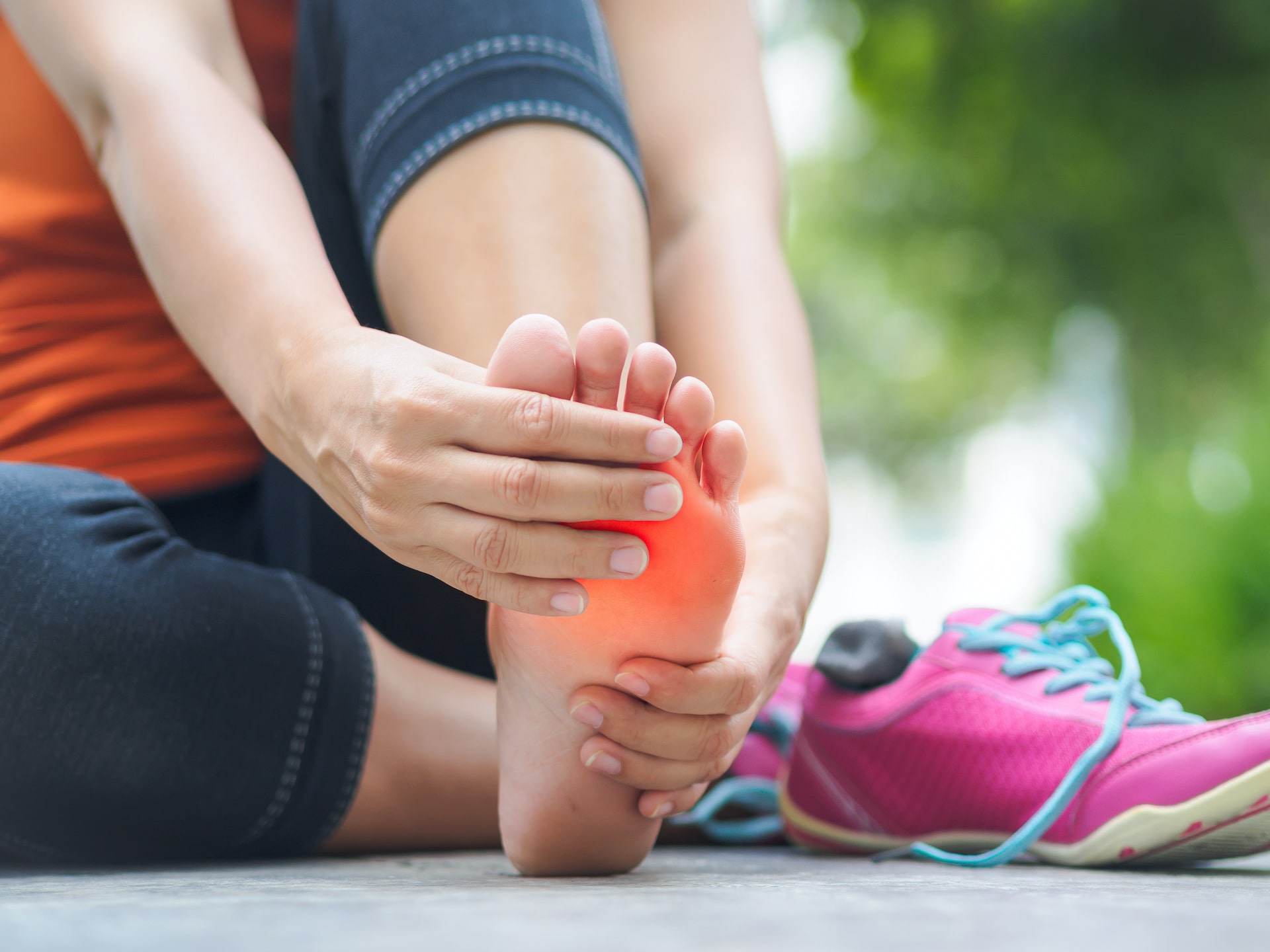Inspect your feet regularly
Although most diabetics are already aware of the need for regular foot inspections, non-diabetics may also benefit from paying regular attention to the feet. Because the feet carry us everywhere we go, they are particularly prone to injuries and infections. Even minor scrapes or injuries may lead to much larger problems, even resulting in hospitalizations or worse. Taking preventative action may help ward off complications and help keep you up and going.
Take a few minutes every day during or after bathing to inspect your feet. Wash and dry your feet thoroughly every day. In addition, apply an emollient moisturizer during colder or dryer weather to help prevent the skin from cracking or irritation.
Maintain a healthy weight
The more you weigh, the more pressure and force your feet have to endure. Excessive weight means extra stress on your feet, and may result in higher risk of injuries and stress fractures. In addition, as your weight creeps up, so does your risk of developing cardiovascular disease, diabetes, hypertension, and myriad other problems. Many chronic health problems that are widespread in the United States may be preventable, better managed, or reversed by regular exercise, healthy diet, and maintaining a healthy weight. By managing your weight, you reduce your risk of developing these problems in the first place. If you are overweight, or have noticed your weight going up recently, take steps to start implementing regular exercise and better eating habits. Your feet will be less prone to injuries and less likely to ache as you alleviate some of the excess pressure they endure.
Start new exercise and dietary routines slowly
One of the most common reasons why people quit new diet and exercise habits shortly after starting them is the tendency to jump in all at once with unrealistic plans and expectations. No habit is formed or changed by radically altering everything related to it all in one go. In addition, making sudden, significant changes to your exercise routine in particular may increase your risk of overuse or stress-related injuries, including sprains and fractures.
Start new routines slowly and focus on getting exercise regularly at an intensity that pushes you a bit, but doesn’t cause you to be so taxed that you can’t maintain the exercise. Aim for 30 minutes of moderate intensity exercise four to five times per week. In addition, focus on changing one or two dietary habits at a time, slowly exchanging unhealthy foods for healthier options. By taking your time, you increase your likelihood of sticking with new eating habits as your palate adjusts to new flavors, and your body adjusts to higher quality foods.
Use the appropriate shoes and gear
Whether you are at the gym, skiing down a mountain, or simply walking down the hallway at work, make sure you have on the appropriate shoes and gear. Many injuries can be avoided by matching your footwear and equipment to your activities. At the gym or during any type of exercise, be sure to wear close-toed shoes that cover the entire foot and provide adequate support through the arch and hug the heel to prevent slippage. Make sure your laces are tied tightly, and that laces are short enough or tucked away so they can’t become caught in equipment, or look for styles that are lace-free.
For sports like skiing, hiking, soccer and beyond, wear the appropriate styles and sizes to match the conditions, your activity level, and the activity itself. Don’t try to wear baseball cleats to play soccer, and don’t wear hiking boots when you snowboard. The right shoes and the right equipment will help protect your feet, improve your performance, and offer comfort and support.
Start the New Year off right by visiting the podiatrists at Kansas City Foot Specialists. We want to keep you moving upright and forward. Call us today at (913) 338-4440 to schedule an appointment.



